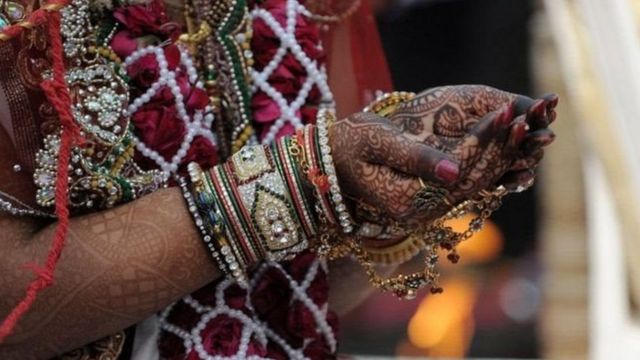
Pakistan's Supreme Court has ruled on a petition seeking a dowry, saying it is necessary to seek the permission of the first wife or arbitration council before a second marriage in order to maintain balance in society. The Supreme Court passed the order while rejecting the petition filed against the immediate payment of Haq-e-Mahr to the first wife of a citizen of Peshawar, Khyber Pakhtunkhwa. The court upheld the Peshawar High Court's decision in this regard.
A two-member bench of the Supreme Court, headed by Justice Umrata Bandial, heard a petition filed by Muhammad Jameel, a Peshawar resident, against the High Court decision. The Supreme Court in its judgment, citing section six of the Muslim Family Laws Ordinance 1961, clarified that "remarriage is not prohibited under this section." The Peshawar High Court in its judgment had told the man that prior permission of the first wife was required for a second marriage and if this was not the case, it had ordered the first wife to pay the haqr in a hurry. The Supreme Court in its judgment, citing section six of the Muslim Family Laws Ordinance 1961, clarified that "remarriage is not prohibited under this section." The court added in its judgment that the said section speaks of permission before the second marriage to organize the social structure as a whole. Justice Mazahir Ali Akbar in his judgment said that violation of this section would create many problems in the society. Following the completion of the hearing on the petition filed against the Peshawar High Court's decision, Justice Mazahir Ali Naqvi read out the five-page verdict. In this decision of the Supreme Court, upholding the decision of the Peshawar High Court to pay the dowry to the first wife immediately before the second marriage, it has been said that the first wife has to pay the dowry immediately on the second marriage without permission. It has been clarified in the decision that whether the Haq-e-Mahr is hasty or not, it will be due immediately. The apex court said that the petitioner did not seek permission from the first wife nor from the arbitration council before the second marriage and the dowry was also due.
The court said that the petitioner was unable to state significant reasons in the appeal against the decision of the Peshawar High Court for immediate payment of Haq-e-Mahr and therefore the petition was dismissed. It may be recalled that last year, Chief Justice of the Islamabad High Court Athar Minallah, while ruling on a petition, had declared the permission of the conciliation council necessary for a second marriage. The court ruled that if the conciliation council refused, despite the first wife's consent, the second marriage would be punished.
A local court in Islamabad had sentenced Liaquat Ali Mir, a resident of Pakistan-administered Kashmir, to one month in jail and fined him Rs. 5,000 for marrying without the conciliation council's permission. The accused was acquitted. The Islamabad High Court had written in its judgment that all the laws of the country would apply to a person who has a national identity card.















0 Comments